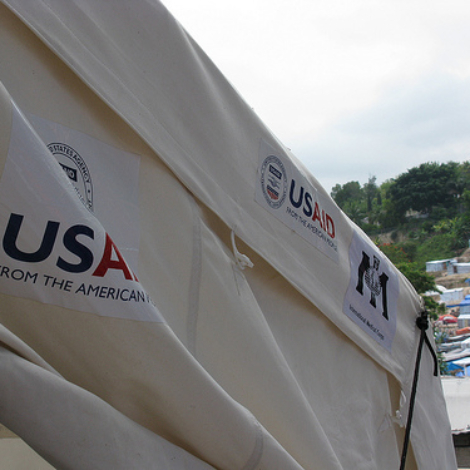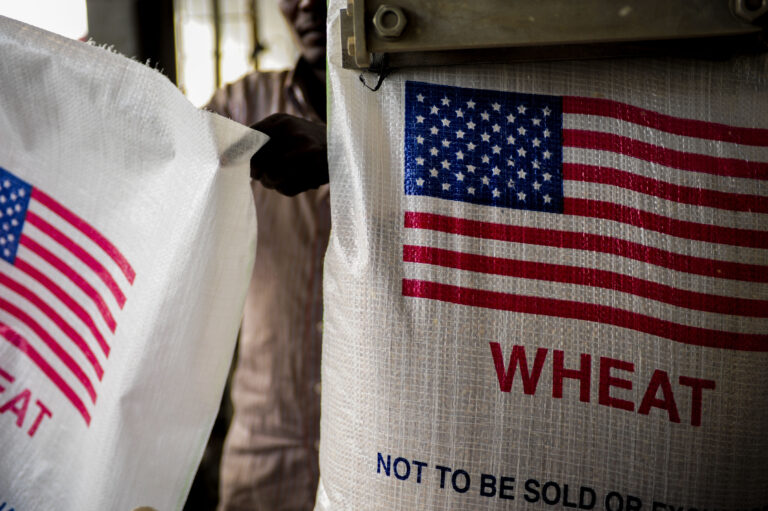Editor’s note: Before its sudden closure in February, the United States Agency for International Development—USAID—was the world’s largest aid agency, with an average annual budget of more than $20 billion and projects in more than 100 countries. The US Presidential administration ended four-fifths of those projects in February, then in July, announced it would fold the agency’s remaining projects into the US State Department. The legality of the move is contested, however, and the agency’s status remains unclear. Most of the programs USAID supported lost their funding. Engineering for Change is gathering stories and information about the effects of the losses on work in which engineers, design and technology play a role.
Field research in low- and middle-income countries has been significantly impacted by USAID foreign aid cuts, especially in regions where USAID has historically been a major funder of development-related data collection, monitoring, and evaluation.
Before this year, USAID funded data collection initiatives, including household surveys, satellite imagery analysis, and program evaluations. The data collected is crucial for informing policy and programming in low- and middle-income countries, particularly in the field of public health.
Engineering for Change interviewed Salome Mbithe, an independent researcher at Accu Check Solutions, whose work has been greatly impacted by the USAID funding cuts.
E4C: To start us off, could you describe the nature of your research and your connection to USAID support before the funding cuts?
SM: I provide research support services, particularly in data collection, fieldwork coordination, and monitoring for a variety of development organizations and implementing partners in Africa. A significant portion of this work was directly tied to USAID-funded initiatives, which rely heavily on field-generated data to inform policy and programming decisions. Before the funding cuts, we were actively engaged in several projects across the region, offering high-quality data collection to support USAID’s evidence-based interventions.
E4C: Since the reduction in USAID aid, what immediate changes have you experienced in your work or field activities?
SM: The impact was immediate and quite disruptive. Roughly 60 percent of our portfolio was USAID-funded, so the cuts affected the majority of our work. We had already commissioned several projects when the funding reduction was announced. As a result, revenue dropped sharply; we were forced to scale down operations, including laying off staff and pausing contracts with field teams, and there was a clear halt in momentum, and a level of uncertainty set in regarding long-term planning.
E4C: Were there specific projects that had to be scaled back, paused, or canceled altogether?
SM: Yes, several projects were directly impacted. At the time of the cuts, I had already commissioned six projects: Two in Kenya, two in Nigeria, one in Tanzania, and one in Uganda. Of these, the Kenyan, Nigerian, and Tanzanian projects were canceled entirely. We had no option but to halt operations mid-way.
The Ugandan project, which focused on Mpox surveillance, was partially spared due to its urgency, but even then, it had to be scaled down significantly. This included reducing fieldwork scope and cutting wage rates for staff to stay within the reduced budget. What remains unclear is whether we will proceed with the next waves of this study, which was originally designed as a multi-phase project.
E4C: In response to the cuts, how have you adapted your approach or strategy to continue your research?
SM: It has been a challenging transition, but we are doing our best to adapt. Our immediate strategy has focused on diversifying our client base and actively seeking new partnerships with organizations that are not reliant on USAID funding. We’ve also begun exploring opportunities with private companies, manufacturers, and government-funded programs, although these take time to establish. Flexibility, cost-efficiency, and realignment of our services have been essential in this transition period.
We are doing our best to adapt. Our immediate strategy has focused on diversifying our client base and actively seeking new partnerships with organizations that are not reliant on USAID funding.
E4C: Have you been able to find alternative sources of funding or support?
SM: Not yet. One of the unique challenges is that USAID itself was the end user of most of the data we collected. So even if we identify new funders, we would still need a framework or audience for data utilization, which currently doesn’t exist at the same scale as USAID. We are in the early stages of mapping potential stakeholders and collaborators, but this shift will require both time and strategic engagement.
E4C: Looking beyond your own experience, how do you think these cuts are impacting the broader research or development community?
SM: The ripple effects across the sector have been significant. The sudden reduction has disrupted livelihoods—many researchers, enumerators, data analysts, and coordinators have lost jobs or seen contracts scaled down. Reduced the volume of critical data that policymakers rely on, especially in areas like health, education, and gender programming. Triggered an economic domino effect, with reduced field activity leading to lower spending in local economies. It has slowed down progress on development goals.
The sudden reduction has disrupted livelihoods—many researchers, enumerators, data analysts, and coordinators have lost jobs or seen contracts scaled down.
E4C: And finally, do you feel these changes reflect a shift in global research or development priorities, and what concerns or opportunities do you see ahead?
SM: Yes, it does seem like priorities are shifting. Many donor countries are now focusing more on their own needs, possibly things like economic recovery, political conflicts, or climate issues. The main concern is that low-income countries might receive less support, especially for social research, which is key for long-term change. If projects keep stopping suddenly, local partners might lose trust and not want to join future work.
Although this could be an opportune time to push for more local control of research, with national and regional groups investing in their data systems. It also opens the door for countries in Africa to work more closely together and rely less on funding from Western countries.
This could be an opportune time to push for more local control of research.
About the Author
Mercy C. Wanjiku Nduati is the Engineering for Change Editorial Fellow for 2025. She also works on the editorial staff of the Vennomax Media Network that publishes the Industrial Journal magazine. And she has written for the magazine Kenya Engineer, published by the Institution of Engineers in Kenya. She holds a bachelor’s degree in communication and media from Egerton University.

